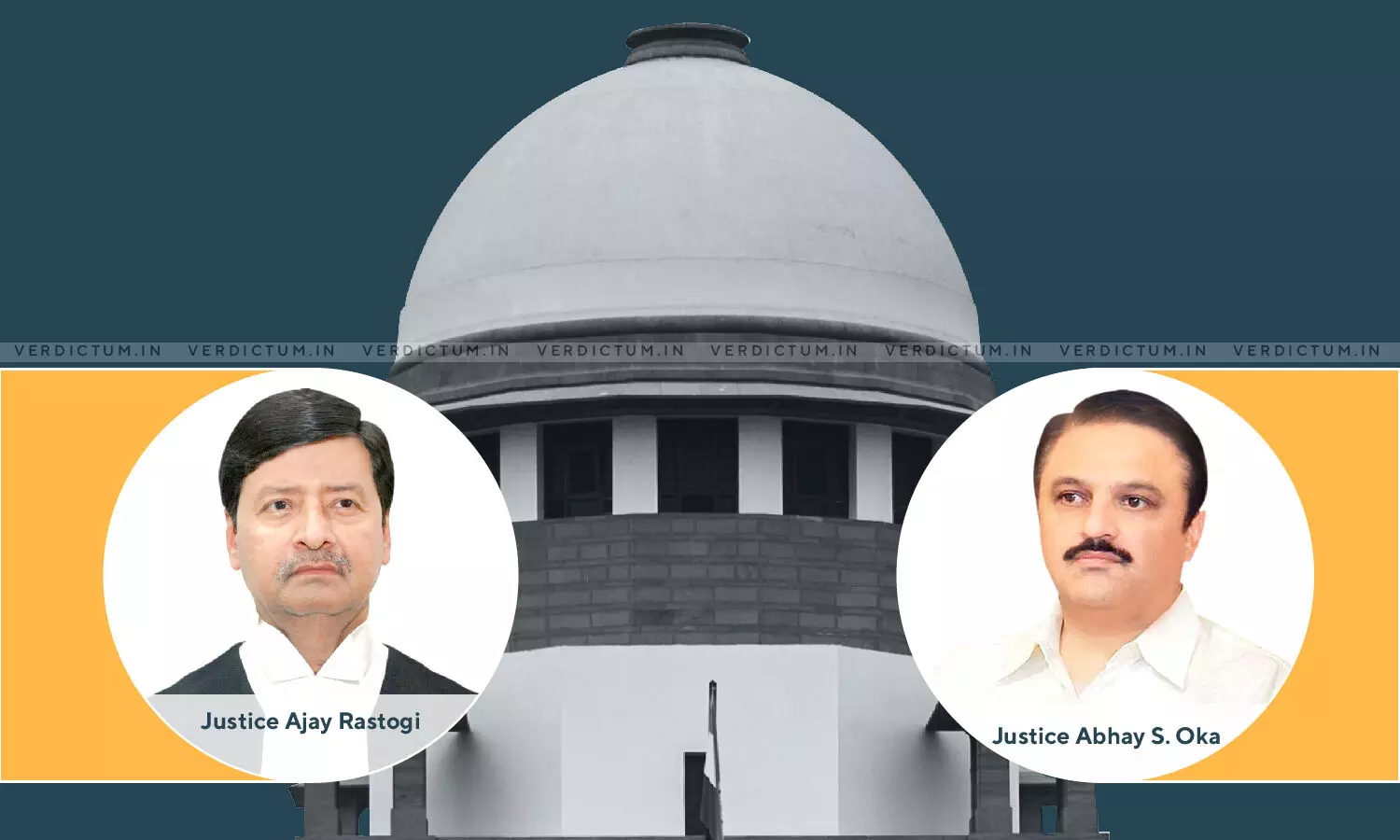
The Term "District Court" U/s. 44A CPC Would Include Local Limits Of The Ordinary Original Civil Jurisdiction Of A High Court: SC
 |
|A two-judge Bench of the Supreme Court comprising of Justice Ajay Rastogi and Justice Abhay S. Oka has held that the once the pecuniary jurisdiction at the given point in time exceeded the stipulated amount, it is the High Court which holds its exclusive jurisdiction as ordinary original civil jurisdiction to execute a foreign decree under Section 44A of the Code and it goes without saying that execution always is in continuation of the proceedings.
The Court made the following crucial observations:
"The ordinary original civil jurisdiction of the High Court is always exercised, based on pecuniary limits. It would be impossible to read into Section 44A of the Code that even though the pecuniary jurisdiction of Civil Court is restricted, still for the purpose of execution of a foreign decree, it becomes the District Court in respect to those matters which fall within the ordinary original civil jurisdiction of the High Court and the expression "district" defined under Section 2(4) of the Code will have to be given its true effect. To read the expression "District Court" in Section 44A for execution of foreign decree, it will be construed to be a Court holding ordinary original civil jurisdiction in terms of its pecuniary limits as being notified under Section 5(2) of the Act 1966."
Dr. Abhishek Manu Singhvi, Senior Advocate appeared on behalf of the Appellant while Mr. Rakesh Dwivedi, Senior Advocate appeared on behalf of the Respondent.
The Appellant (decree holder) impugned the judgment of the Division Bench of the Delhi High Court relegating it to file a petition for the execution of a money decree of a foreign Court notified as a superior Court of a reciprocating territory before the District Court in view of Section 44A CPC.
The Court noted the old saying that the difficulties of the litigant in India begin when he has obtained a decree. In this case, the decree-holder got a money decree from a foreign Court in February 2006 and still, it was not clear as to which forum to approach for execution of a decree.
The proceedings were initiated before the High Court of Justice, Queen's Bench Division, Commercial Court, United Kingdom. This Court is a superior Court of a reciprocating territory notified under Section 44A of the CPC. No appeal was filed against this decree and it attained finality.
The Appellant had filed a petition for the execution of a money decree with the Delhi High Court in 2006. Preliminary objections were overruled by a Single Judge. This was assailed before the Division Bench. The Division Bench came to the conclusion that Section 44A is an independent right conferred on foreign decree-holder and has no correlation with jurisdictional issues.
The Division Bench held that the High Court not being a District Court is not vested with jurisdiction to entertain execution petition and directed transfer of petitioner to District Judge. Hence, the appeal before the Apex Court.
The Court culled out the following question for its consideration:
Whether the High Court of Delhi in exercise of its original jurisdiction is a competent Court to entertain a petition for executing a money decree(in excess of Rs.20 lakhs) of a foreign Court which is notified as a superior Court of reciprocating territory under Section 44A of the Code.
The Court noted that the expression "District" is defined under Section 2(4) of the Code and the term District Court in Section 44A although not defined refers to the local limits of the jurisdiction of a principal Civil Court of original jurisdiction and it includes local limits of the ordinarily original civil jurisdiction of a High Court.
The Court noted that the certified copy of the decree and a certificate from a superior Court is to be filed under Section 44A. The Court noted that the certificate is conclusive proof of the extent of satisfaction and adjustment.
The Court noted that once pecuniary jurisdiction exceeded Rs. 20 lakhs (at that point in time) under Section 5(2) of the Act it is the High Court that holds exclusive jurisdiction to execute a foreign decree.
The Court noted, "The Division Bench had "proceeded on the basis of the expression "District Court", as being referred under Section 44A of the Code but it has not taken into consideration the other relevant provisions of which a reference has been made by us while coming to the conclusion that the expression "District" as defined under Section 2(4) of the Code only lays down the limits of the jurisdiction of the principal civil Court of original jurisdiction and that includes the ordinary original civil jurisdiction of the High Court and once the pecuniary jurisdiction exceeds as being notified under the relevant statute, the jurisdiction vests exclusively with the High Court as an ordinary original civil jurisdiction for execution of a foreign decree under Section 44A subject to the just objections which are available to the parties/judgment debtor as envisaged under Section 13 of the Code."
The Court allowed the appeal and set aside the judgment of the High Court. The execution petition was restored on the file of the Division Bench of the High Court. The Court observed that the Division Bench may take up the matter on priority and decide the same on its own merits as expeditiously as possible but not later than 4 months.